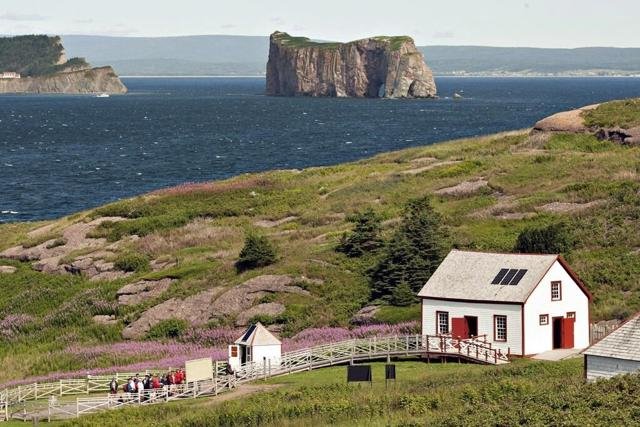
The Bonaventure Island is shown overlooking the Perce rock on July 25, 2012. THE CANADIAN PRESS/Jacques Boissinot jqb djs
Thousands of tourists flock to Quebec's Îles-de-la-Madeleine every summer to enjoy its stunning scenery and beaches. However, starting next month, visitors will face a new expense: a $30 fee. This fee, called the Passe Archipel, aims to generate funds for tourist infrastructure, environmental protection, and waste management on the small archipelago. It will be mandatory for all domestic and international travelers staying on the islands for more than 24 hours between May 1 and October 14. Failure to pay the fee could result in a $1,000 fine.
The decision to implement the fee stems from the strain that the increasing number of tourists places on local services and municipal revenue. With a resident population of around 13,000, the islands welcomed approximately five times as many visitors between May and October 2023. Îles-de-la-Madeleine Mayor Antonin Valiquette emphasizes the necessity of the fee to maintain the islands' quality of life and preserve them as a desirable tourist destination.
Despite the mayor's assurances that the fee won't hinder access to the islands, some residents and business owners express concerns about its impact on freedom of movement within Quebec. They argue that the fee unfairly targets mainland Quebecers who already contribute to public resources through taxes. This sentiment was particularly evident during a local government meeting where the bylaws establishing the fee were passed.
While acknowledging the municipality's financial challenges, critics like former town councillor Suzie Leblanc worry about the implications of restricting citizens' mobility. They view the fee as a barrier to their freedom to travel within their own country, a sentiment echoed by local hotel owner Chanie Thériault. Thériault also questions the fairness of charging Quebecers for using infrastructure funded by their taxes.
In response, Mayor Valiquette compares the visitor fee to tolls imposed on infrastructure like the Confederation Bridge between New Brunswick and P.E.I. He believes that most travelers would prefer to pay the fee rather than face significantly higher costs for alternative fundraising strategies like parking fees or accommodation charges.















